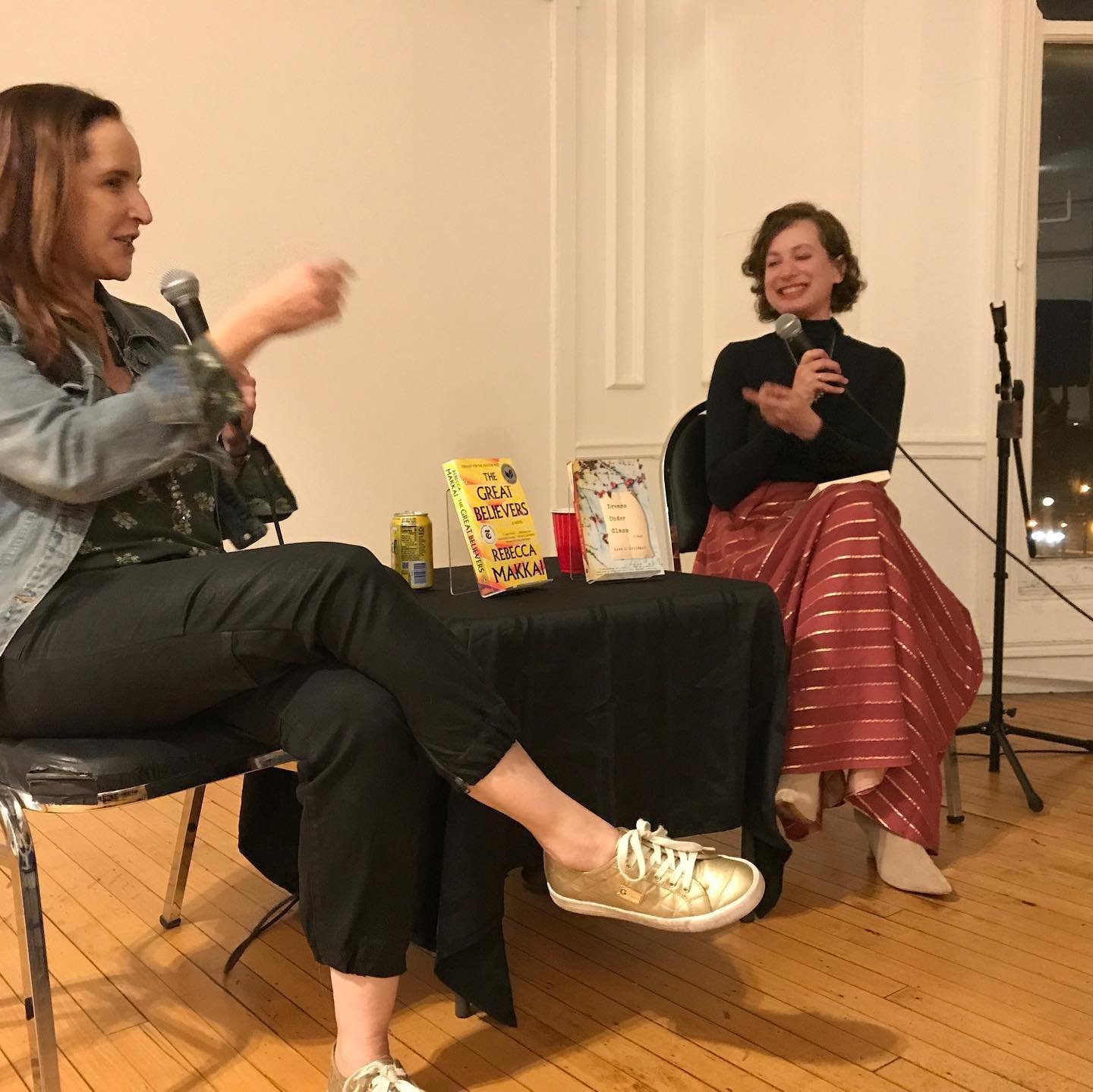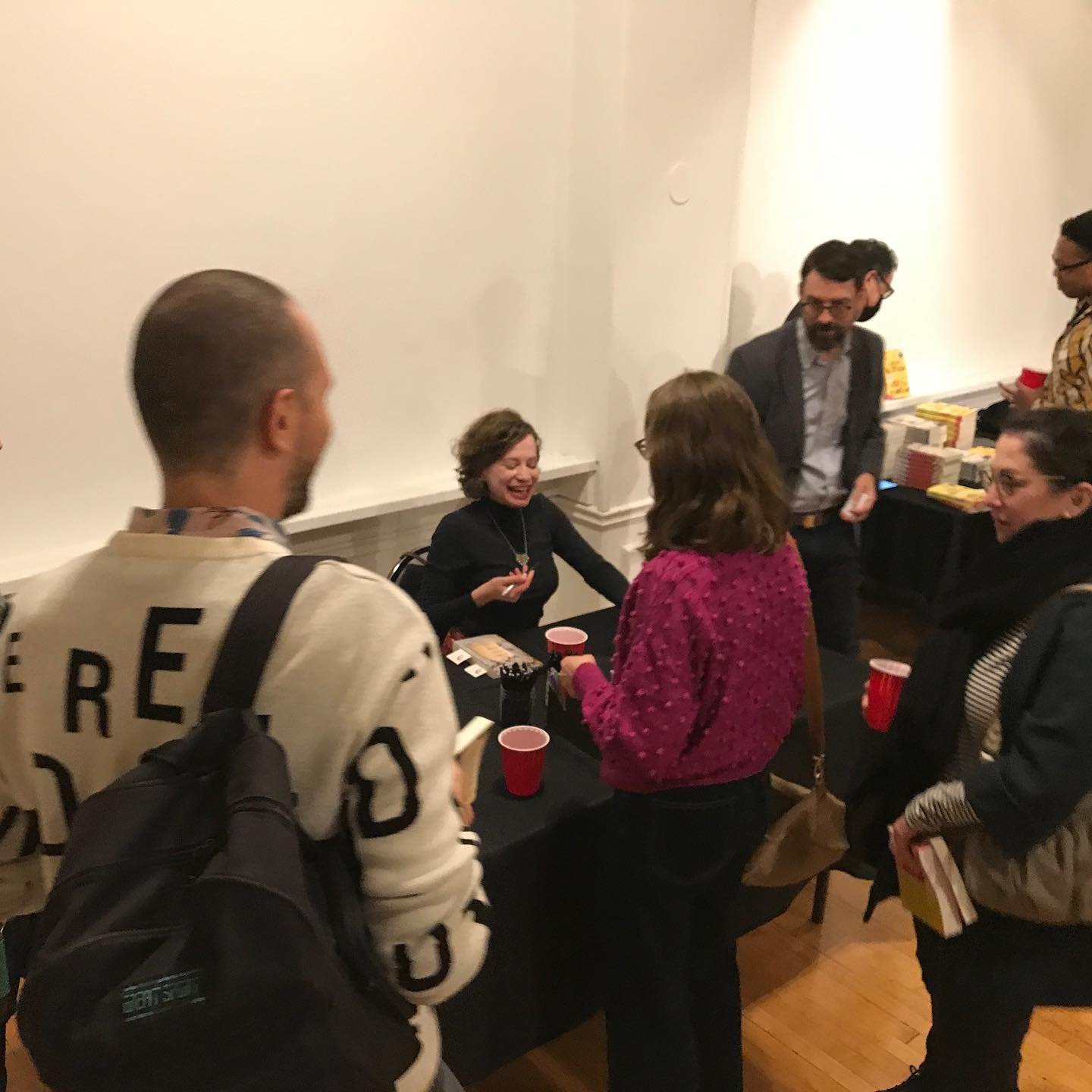A few pictures from the launch party for Dreams Under Glass at Exile in Bookville: Javier Ramirez introducing the book, chatting with Rebecca Makkai, and signing books.
As one might anticipate from my end-of-the-year post of 2021, parenting a toddler has been the almost-all-consuming phenomenon of 2022. As my son approaches the age of two, the vocabulary explosion is a wild ride. He can repeat most words (careful what you say!) or will try to in an extraordinarily cute manner. The simple sentence that melted my heart last week: “Nene read it.” (“Nene” is the nickname he came up with for himself.) But my writing life did not come to a halt either.
In the spring, The Fiddlehead published my essay “Boiled Boot,” exploring the intergenerational trauma of wartime starvation in my family. The essay is in print only, but will be part of the collection of lyric essays on food and cultural memory that I’ve been working on the last several years. In the summer, The Fiddlehead published my appreciation of Scholastique Mukasonga’s novel Our Lady of the Nile, which you can read here.
The big publishing event of my year was, of course, the release of my second novel, Dreams Under Glass, from Lanternfish Press. I’m grateful for positive reviews from Newcity, which called it “sensitive, unsettling” and “revelatory” and from Windy City Reviews, which called it an “engaging…impressive tale.” You can watch me read a couple excerpts from the novel at recorded events on my YouTube channel.
In conjunction with the release of Dreams Under Glass, I wrote three companion pieces:
In “Vision Loss and the Ekphrastic Novelist,” published online in Poets & Writers Magazine, I reflect: “In artist statements, I have often written that in my work I am trying to capture what’s fleeting, but I had never contended with the possibility that this would include my own vision.”
For Monkeybicycle’s “If My Book” column, I compare Dreams Under Glass to weird things, for example: “If Dreams Under Glass were a breed of dog, it would be a Chow Chow with a Pomeranian complex.”
In “I Had a Mysterious Infection, It Changed the Course of My Life,” published in Newsweek, I explore how a month as in-patient at the National Institutes of Health back in the summer of 2001 made a significant impact on my life.
Another highlight of the year was having my story “Street of the Deported” included in Lilith Magazine’s first ever anthology, Frankly Feminist, collecting 45 years of Jewish feminist fiction. The story won first prize for the magazine’s 2017 contest. It’s a thrill to see the anthology available in 148 libraries worldwide.
The final highlight of the year was a gift I gave to myself in anticipation of the stress of publicizing Dreams Under Glass. I hired my friend and fellow University of Washington MFA alum Piper J. Daniels, author of the essay collection Ladies Lazarus, for help with my own essay collection. I couldn’t be happier with the progress I’m making on that project! I’m dedicating the first two weeks of 2023 to my writing, tackling a revision of my third novel and drafting a few more pieces of flash nonfiction for the collection. In the fall I’ll have some new essays out and I’ll happily share more details here when I can.
I hope you had a marvelous 2022 and look forward to a fantastic 2023! I know these past few pandemic years have been trying, but taking a moment to reflect on all the good is always a balm.



